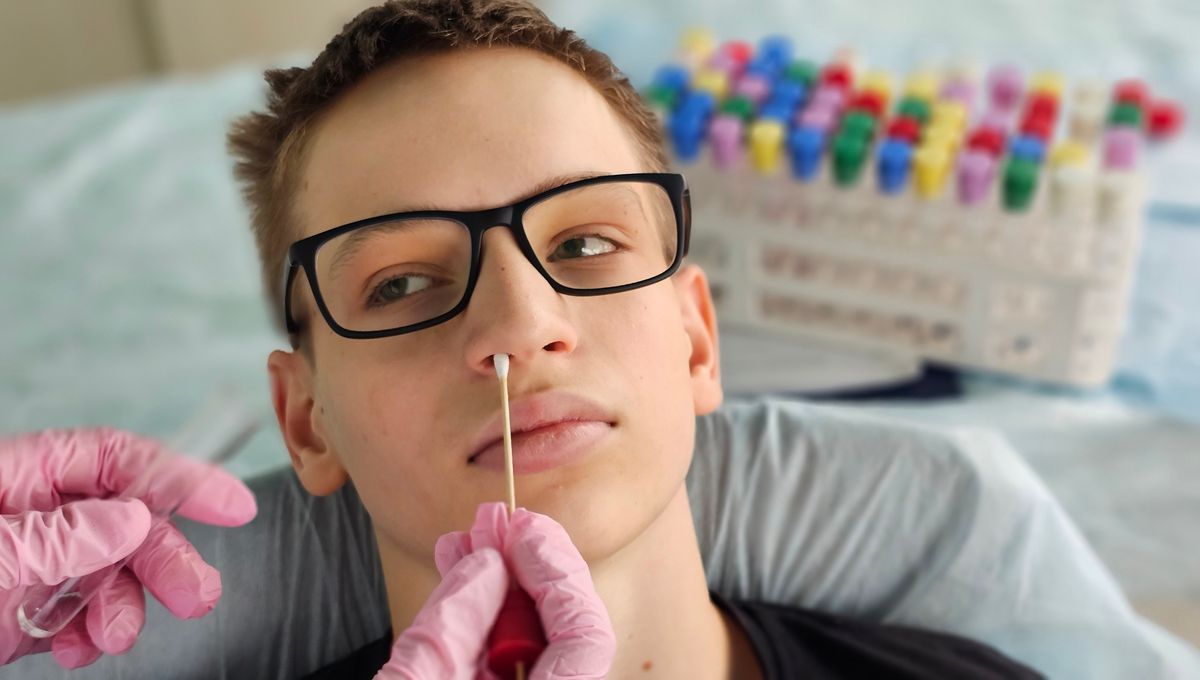
Keeping up with your COVID-19 vaccines is a good idea for lots of reasons – not least the fact that the virus keeps throwing new variants our way. A new study may have added one more to that list by finding that receiving multiple mRNA shots could boost antibody levels in the nose, often the virus’s first port of entry – however, another study published at the same time reached a decidedly different conclusion.
“We found that individuals who received multiple doses of mRNA vaccines exhibited a marked increase in neutralizing antibodies in nasal secretions, which are essential for blocking viral entry,” said Jozefien Declercq, a PhD student at the VIB Center for Inflammation Research and Ghent University and first author of the first paper, in a statement.
“Not only that, but the immune responses generated by mRNA vaccines may persist longer than previously thought, which provides hope for sustained protection against emerging variants of the virus.”
The mRNA vaccines developed by Pfizer-BioNTech and Moderna remain some of our best lines of defense against SARS-CoV-2. Along with other vaccine platforms, these interventions helped change the course of the pandemic, saving millions of lives.
While they provide a high level of protection against severe disease, this protection doesn’t last forever, which is why regular booster shots are generally recommended. While we know quite a lot about the circulating immune response that’s precipitated by the vaccines, however, less is known about mucosal immunity – defenses in membranes such as those that line the nose and gastrointestinal tract.
To investigate, the team took blood and nasal swabs from 183 people before and after receiving their first COVID-19 vaccines – for 84 of them, this was two doses of an mRNA vaccine, while the other 99 had two doses of a viral vector vaccine. Later, all participants remaining in the study received an mRNA booster shot.
“Collectively, our data demonstrate that repeated mRNA vaccination induces systemic [neutralizing antibodies] that can reach the respiratory mucosa,” the authors wrote in their paper.
Further experiments in a mouse model suggested that the antibodies were first being circulated in the blood, before migrating to the nose. The benefit of a strong mucosal response in the nose is that it can help prevent infection in the first place, and thus help stop the spread of the disease.
However, these results are not quite the end of the story. In a separate paper, published in the same journal, a different group of scientists ran similar experiments and came to different conclusions.
Led by a team at Beth Israel Deaconess Medical Center, Harvard Medical School, the researchers also used blood and nasal samples, this time from 31 people who received the updated booster shot for fall 2023, and 27 people who did not.
While they found that an mRNA booster shot increased the levels of antibodies circulating in the blood, they did not replicate the findings of Declercq et al, as they recorded no increase in mucosal antibodies. This, the authors write, explains why the mRNA vaccines have proven less effective at preventing infection than they have at reducing the risk of severe disease and death.
“These differing results may be due to the number of SARS-CoV-2 vaccinations or exposures, time since last exposure, and experimental approaches, but this pair of papers underscores the need to better understand the mucosal immune response in humans,” writes editor Courtney Malo in Editor’s summaries accompanying both papers.
Indeed, both sets of authors do highlight the limitations of their respective approaches in their papers.
These two publications give us something of an insight into how science works in real-time. It’s not unusual for different groups working on similar questions to come to radically different conclusions – all it means is that we’re not done investigating yet. COVID-19 is here to stay, and there’s clearly a lot more left to discover about how we can prime the human body to defend against it.
Both studies, Declerq et al and Lasrado et al, are published in the journal Science Translational Medicine.
Source Link: Can COVID Shots Boost Antibodies In The Nose? A Tale Of Two (Conflicting) Studies